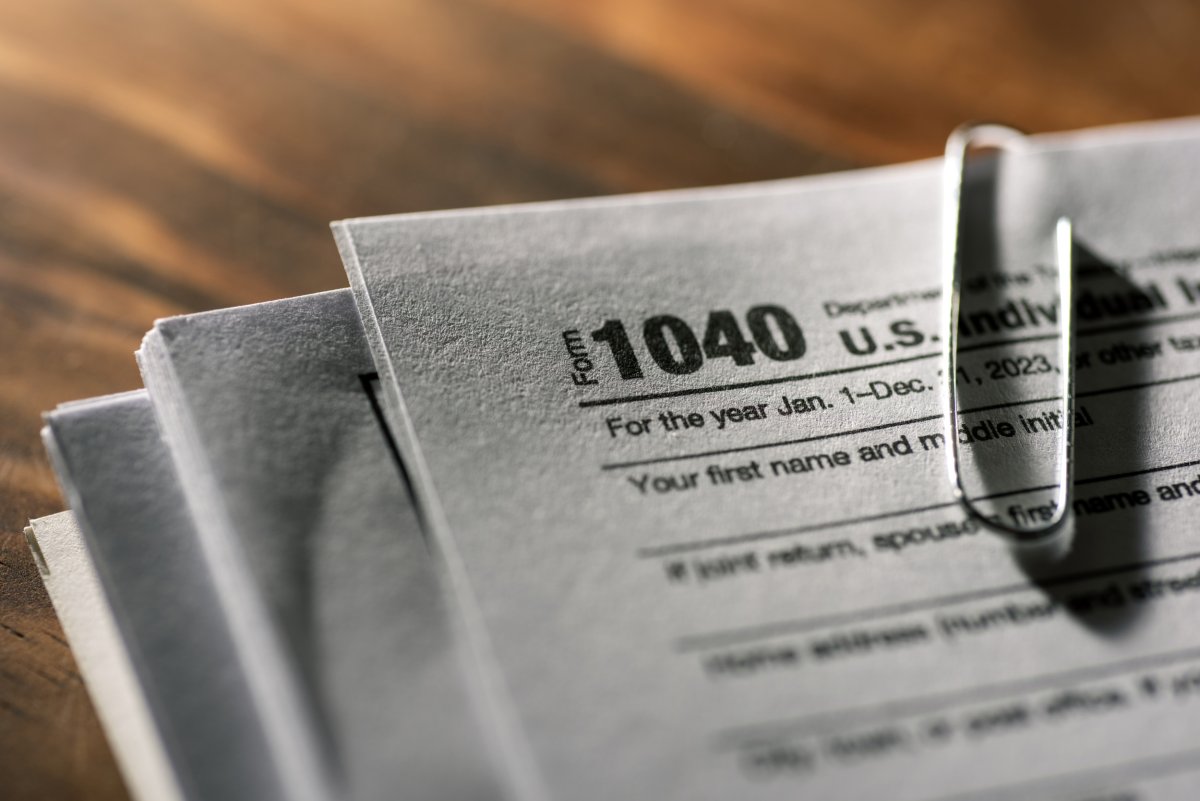The Internal Revenue Service (IRS) has warned that it will continue to pursue wealthy Americans who do not file their tax returns.
This latest warning comes amid revelations that despite a recently revamped IRS system to get people to file their tax returns, many are still not complying.
"We have made progress. That said, there still remains a lot of work," an IRS official told CNBC. However, they warned that the IRS would not rest, saying: "We continue to pursue these folks. This is not work that we will let go."
Newsweek has emailed the IRS for comment.

In February 2024, the IRS launched a new contact system to target 125,000 high-income individuals who had not filed tax returns since 2017. These people were identified through third-party information—through Forms W-2 and 1099s—that showed these people had income between $400,000 and $1 million, or over $1 million but had failed to file their tax returns.
A wave of compliance letters was used to target them in the first six months of this revamped initiative.
Funding from the Inflation Reduction Act, signed into law by Biden in 2022, gave the IRS the capacity to do this administrative work.
In September 2024, the IRS reported that almost 21,000 wealthy Americans had since filed their tax returns, with $172 million in taxes being filed.
Overall, the IRS believes that the total tax owed by the 125,000 high-income individuals is more than $100 billion.
Adding to this success, an IRS official recently told CNBC that since September, an additional 5,000 have filed their tax returns, with $292 million in total tax revenue now paid.
The reason many are still not filing their tax returns is likely due to a handy loophole in federal law. It is a felony offense to file false tax returns but only a misdemeanor to not file them at all.
A misdemeanor tax offense is punishable by no more than one year in prison or a fine of not more than $250,000 in the case of an individual ($200,000 for a corporation) or both.
The Treasury Department has proposed that criminal penalties on chronic non-filers should be increased, arguing that "non-compliance by high-income taxpayers has a significant corrosive effect on tax administration and collection."
In the proposal, the Treasury argues that "any person who willfully fails to file timely required tax returns in any three years within a consecutive five-year period, where the aggregate tax underpayment for such five-year period is more than $250,000, would be subject to a new aggravated failure-to-file criminal penalty."
This offense would then be classified as a felony and punished by imprisonment of no more than five years, a fine of up to $250,000 ($500,000 in the case of a corporation), or both.

